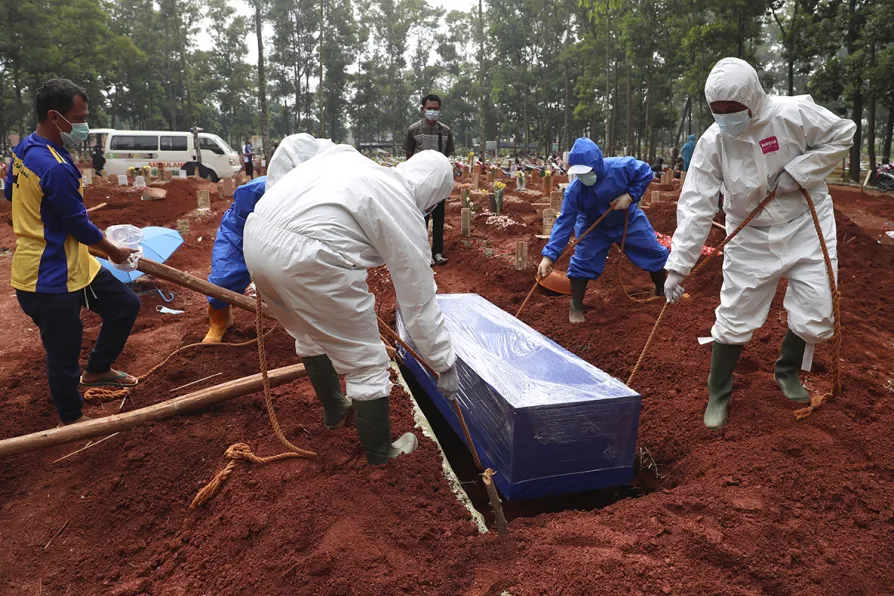WHO hails new steps to improve global pandemic preparedness

 Workers in protective gear lower a coffin of a Covid-19 victim to a grave for burial at the Cipenjo Cemetery in Bogor, West Java, Indonesia, July 14, 2021
Workers in protective gear lower a coffin of a Covid-19 victim to a grave for burial at the Cipenjo Cemetery in Bogor, West Java, Indonesia, July 14, 2021
THE World Health Organisation (WHO) announced on Saturday that member countries had approved new steps to improve global preparedness for and response to pandemics like Covid-19 and mpox.
Countries agreed by consensus to amend the International Health Regulations (IHR), which were last changed in 2005, such as by defining the term “pandemic emergency” and helping developing countries to gain better access to financing and medical products, the WHO said.
The move came as the United Nations agency ended its six-day World Health Assembly, after plans to adopt a more sweeping pandemic treaty at the meeting were shelved.
Similar stories

The NHS continues to say Covid spreads primarily through ‘droplet and touch’ while the WHO emphasises airborne transmission, meaning vulnerable patients and healthcare workers face unnecessary risks, reports RUTH HUNT













